
Source: milan2099 / Getty
As soon as the holiday season began, COVID-19 cases started to rise again. Experts aren’t surprised, as one epidemiologist at the University of California, San Francisco told NPR a winter surge is expected. This quote came on the heels of the U.S. seeing a 14 percent increase in cases from just one week to another in early November. The COVID-19 virus and the holidays are in direct conflict with one another: this is a time of year when people want to gather, and it’s also a time of year when people tend to get sick. Between the travel and holiday get together’s, humans create some pretty efficient ways for COVID-19 and other viruses to spread rapidly during the winter.
Becoming sick while you’re in your own home is already miserable, but at least you can quarantine where you’re comfortable and limit interactions with others. But what happens if you start to develop symptoms while you’re hundreds or thousands of miles away from home? With TSA reporting over a million travelers each day in recent months, getting sick while away from home isn’t just a hypothetical: it’s a real possibility. Here’s what to do if you get sick while you’re away from home.
Keep A Mask On
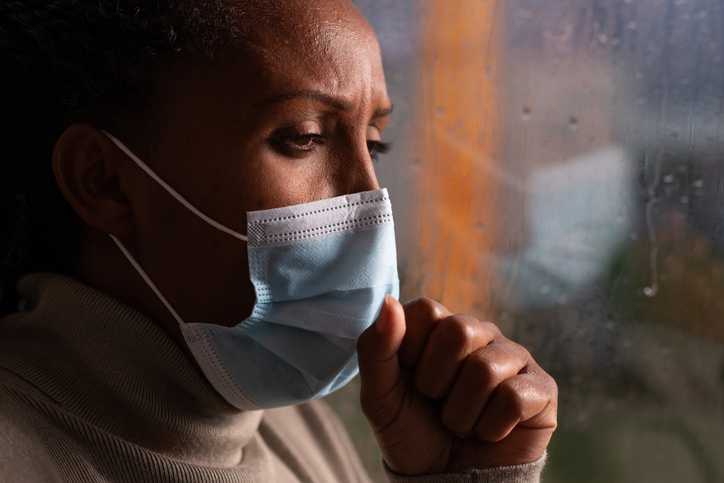
Source: RuslanDashinsky / Getty
You know your body, and for everyone, sickness first appears in a slightly different way. Maybe for you it’s a little tickle in the throat or a mild headache. At the first sign of a symptom, put on a mask if you’re staying with others. The CDC recently published new studies showing the continued effectiveness of masks against the spread of COVID-19. If you cannot isolate yourself because you’re staying with friends or family and are a plane ride away from home, put a mask on the moment you feel symptoms. Notify those around you what is going on, and recommend that they were masks as well until you can get tested.
Get Tested Right Away

Source: Future Publishing / Getty
If you know you’ve been exposed to someone who tested positive for COVID-19, or you were recently near someone displaying symptoms who didn’t know if they were ill, the CDC recommends getting tested within three to five days of exposure to ensure the most accurate results. That being said, if you yourself have already developed symptoms, your incubation period should have passed and you are likely at the phase of the illness where a test will detect it. Remember, even if you test negative for COVID-19, if you are displaying flu-like symptoms, you can have another spreadable virus and should continue to take the precautions laid out here.
Find A Way To Quarantine
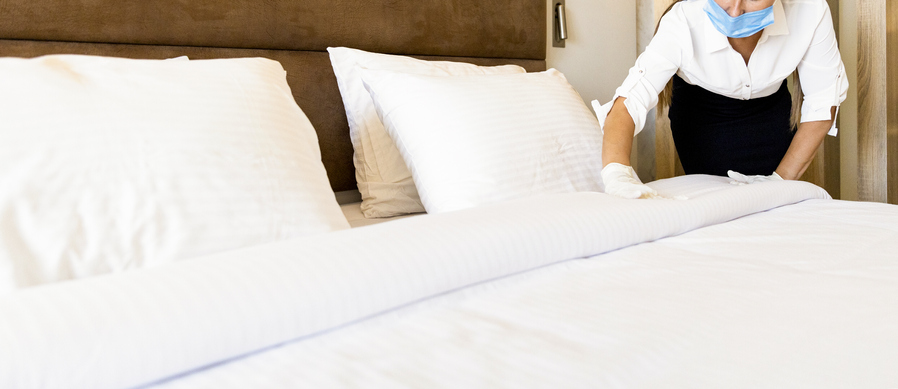
Source: NDinfinity / Getty
If you test positive for COVID-19, find a way to quarantine where you are. If there is a dedicated guest room where you are staying, move into that room. Do not leave the room unless necessary, and wear a mask when you do. You can have others in the home drop off meals, medicine and other supplies at the door. If there is a separate unit for you to stay in such as a guest house or an RV on the property, quarantine there for total separation. If there is nowhere for you to quarantine where you are staying because you were, for example, sleeping on the couch at a friend’s home, look for a hotel with outdoor entry and self-check-in. This will allow you to get to your room without going through an indoor space such as a lobby, and without having to interact with the staff. Notify the staff that you are ill and you are quarantining so nobody enters your room while you are there, and staff can take proper precautions when you finally check out.
Let Your Airline Know
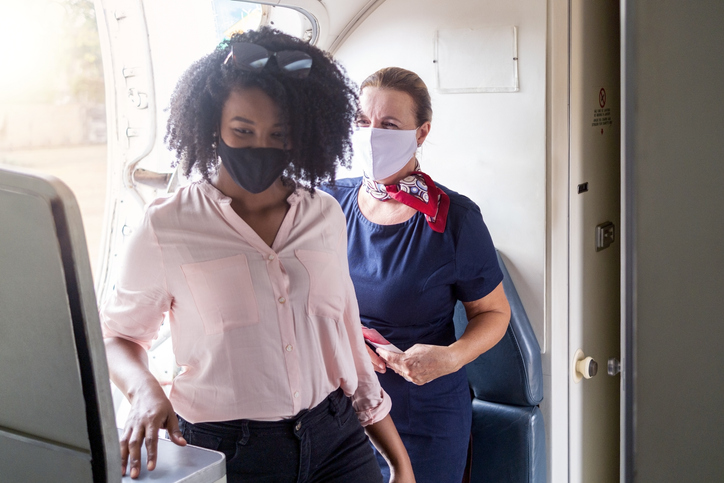
Source: wsfurlan / Getty
If you purchased trip insurance, you might be able to get a refund for your travel depending on the conditions of the policy. Either way, it is best to get in touch with the airline in advance of the flight rather than just let the flight go by. If you contact them in advance and notify them of the situation, they might offer you a credit with the airline, so that you can re-book once you are healthy. Or they might offer to change your flight for 10 days (the time of a quarantine) out, for no change fee. Often, you will not receive these options if you simply don’t show up for your flight, and don’t communicate with the airline in advance.
Notify Anyone You Saw
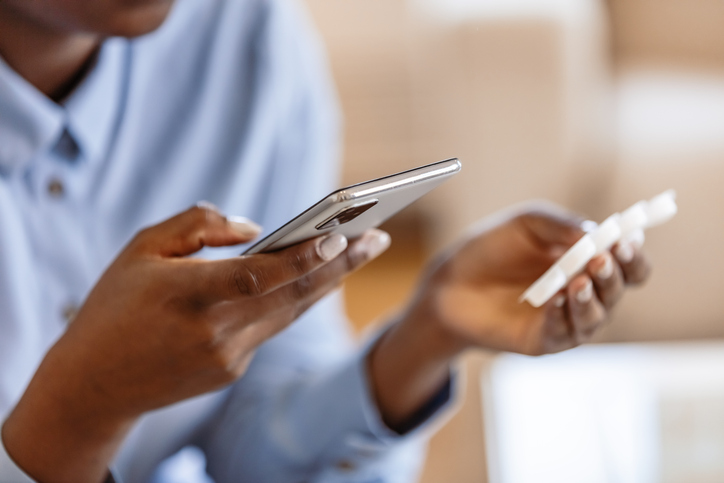
Source: ljubaphoto / Getty
Let anyone who you have seen during your trip know that you are sick so that they can get tested and quarantine if possible. If you are staying with friends or family, they will also need to notify anyone they have seen throughout your visit. Contact tracing is an important part of slowing the spread of COVID-19, so letting anyone who might have interacted with you while you were sick and didn’t yet know it know that you are sick is important. Even it if seems like an abundance of caution, it’s better to be safe than sorry. Keep in mind the CDC states a person is considered contagious even two days before developing symptoms.
Get A Negative Test Before Travel
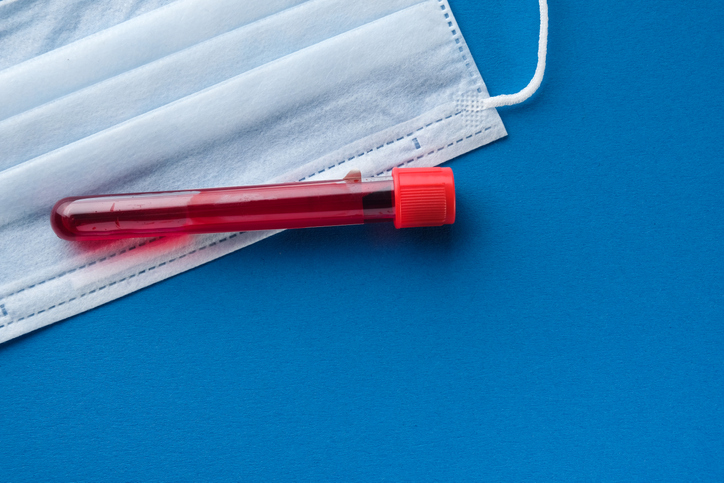
Source: Aleksandr Zubkov / Getty
While experts state that you must quarantine for 10 days after getting a positive test for COVID-19, keep in mind that airlines have their own rules. Your airline might require you to show a negative COVID-19 test in order to board the plane. Unfortunately, it can take some time (longer than 10 days) in some cases before you test negative. Gavi The Vaccine Alliance reports that some individuals test positive for weeks or months after recovering from COVID-19. The good news is that, in many cases, if you can provide a doctor’s note stating you are no longer ill and show an antibody test showing you have recovered from COVID-19, you can board an airplane.









